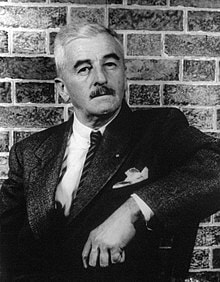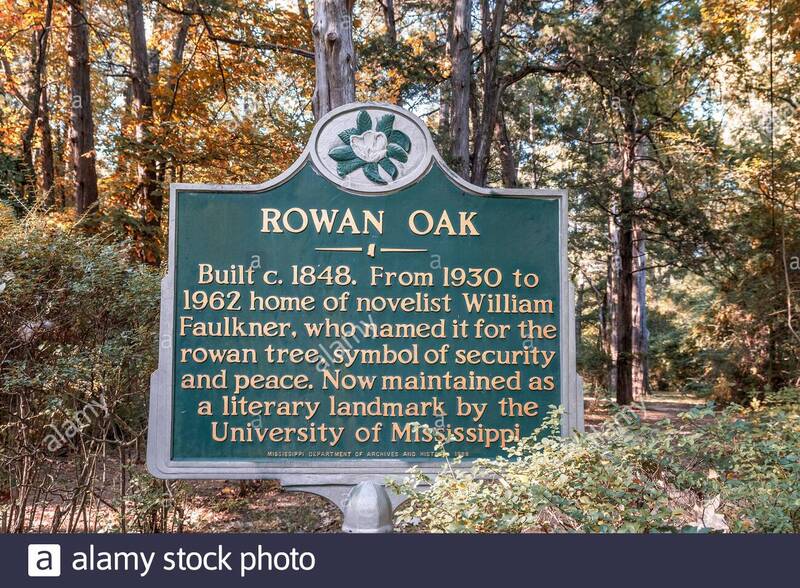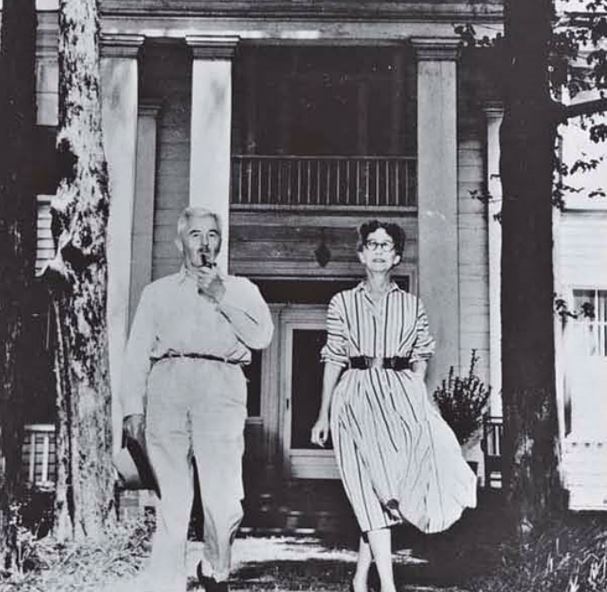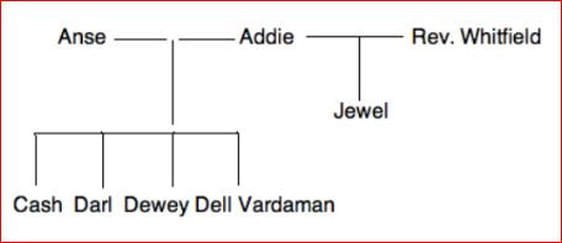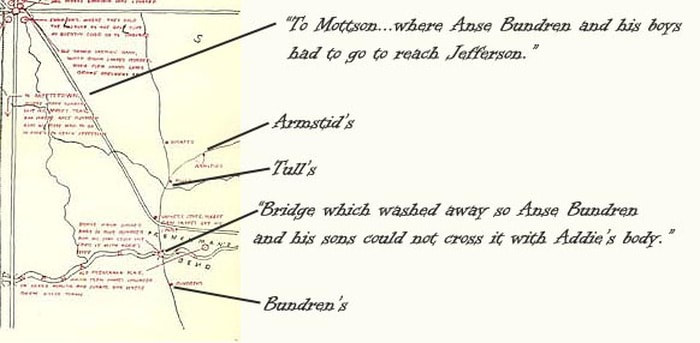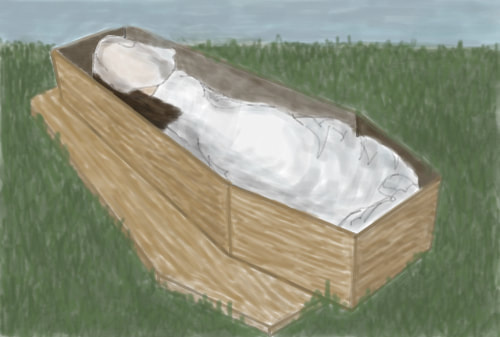Read As I Lay Dying:
as_i_lay_dying_full_text.pdf
As I Lay Dying is composed of fifty-nine narratives delivered by fifteen different characters who indulge in unabashed inner thoughts and secret desires of their own. These narratives as a whole interweave the contour and content of the family life of the Bundrens living in the Deep South during the 1930s.
The emotional structure of their lives surfaces with full pathos and bathos only after the reader gets a grasp of their seeming non sequiturs and idiosyncrasies. To capture the moral uncertainties of these degenerate, absurd characters, William Faulkner uses diverse modernist techniques such as interior monologue and stream of consciousness, and the stoicism, sacrifice, and bravery the Bundrens embody could not be any more profound than the stupidity and egotism they exhibit.
Having carved out an indelible fictional world of Yoknapatawpha County in Mississippi and imbued his characters with lofty idealism, ineffable love and hate, and pathetic ignorance--often all at the same time--William Faulkner received the Nobel Literature Award in 1949.
Addie Bundren dies
Darl--Cora--Darl--Jewel--Darl--Cora--Dewey Dell--Tull--Anse--Darl--Peabody--Darl--Vardaman (Pages 1-58)
Darl: In the opening narrative, Faulkner exposits the time and space Darl inhabits. What diction, imagery, and symbolism does the author utilize to portray Darl as an omniscient seer or an ill-fated prophet? What can we infer about Darl's view of himself and Jewel?
Cora: We hear the proud and stupid mind of Cora at work busy justifying her loss of eggs and labor in this narrative. Where is Cora while she goes through this interior monologue?
What secret desires do Anse, Dewey Dell, and Vardaman harbor that they think going to Jefferson will fulfill?
Darl and Jewel return home and the Bundrens leave for Jefferson
Dewey Dell--Vardaman--Tull--Darl--Cash--Vardaman--Tull--Darl--Cash--Darl--Vardaman--Darl--Anse--Darl--Anse--Samson--Dewey Dell
(Pages 59-105)
Why are Vardaman and Dewey Dell resentful toward Dr. Peabody?
Describe Anse's transformation once Addie's funeral begins (you may focus on Tull's and Samson's narratives).
When the Bundrens arrive in Samson's homestead, Addie has been dead for four days. Why was this journey delayed and what is its consequence?
The Bundrens cross the river
Tull--Darl--Tull--Darl--Vardaman--Tull--Darl--Cash--Cora--Addie--Whitfield--Darl--Armstid--Vardaman
(Pages 106-175)
Why do you think there is a narrative delivered by Addie who is already dead? Is there any other epic narrative in which the dead coming back from the underworld informs the living of the secrets of this world?
What are the roles that each of the Bundrens plays while crossing the bridge and the ford?
What do Cash and Jewel respectively sacrifice while securing the coffin?
Armstid relays Uncle Billy's observation, "Like he says, a man aint so different from a horse or a mule, come long come short, except a mule or a horse has got a little more sense." Why do you think Faulkner repeatedly compares the Bundrens to mules and Jewel to a horse?
From whom does Anse purchase a new team of mules? How does he secure the payment of fifty dollars?
Identify some episodes of tragicomedy, or black comedy.
The Bundrens arrive in Jefferson
Moseley--Darl--Vardaman--Darl--Vardaman--Darl--Vardaman--Darl--Cash--Peabody--MacGowan--Vardaman--Darl--Dewey Dell--Cash
(Pages 176-231)
Why do you think Darl did what he did?
How does Jewel establish kinship with the Bundrens, especially with Cash?
Consider how Faulkner develops color imagery of green, black, red, and white.
Discuss Cash's moral authority in terms of Christian virtues.
Discuss Jewel's heroism in terms of Hellenistic virtues.
What do you think of the ending of this novel? Do you think Anse is a veritable hero, legitimate patriarch who achieves his goals after successfully completing the ten-day-long odyssey?
Why do you think Cash delivers the final narrative?
Why do you think both Jewel and Dewey Dell betray Darl to the authority knowing well that he may be committed to a mental institution for the remainder of his natural life?
Meet the Hateful Eight, the Most loving, Pathetic Family in the Whole Wide Deep South
The Holy Grail, or What the Bundrens Desire
How do the Hellenic and Hebraic Mythologies shape Faulkner's Yoknapatawpha?
As the title of As I Lay Dying imparts, Faulkner sets this 1930 novel against the backdrop of classical epic narratives--that of The Odyssey. What qualities and traditional values do the Bundrens honor and embody? Which character exhibits such bravery and leadership that behooves an epic hero? What kind of heroic narrative do you think As I Lay Dying is?
Have you noticed how often characters such as Anse, Cora, and Whitfield, among others, quote the Bible and refer to God? Indeed, there is definitely an underlying theme of Christian redemption. Anse who seemingly achieves his Holy Grail by the novel's end repeatedly quotes the Bible and invokes the divine providence. In what ways does Faulkner utilize the Christian mythology of the original sin, expulsion from “Eden,” personal suffering and sacrifice, the pursuit of the Holy Grail, and the redemption in this novel? Do you think Faulkner treats these archetypal Christian concepts in earnest or in irony?
The Fools' Progress: Ten-day-old Body and Buzzard Entourage
Why do you think Faulkner chose to borrow a phrase from The Odyssey and use it as the title of his novel, As I Lay Dying?
|
What Is Satire?
|
